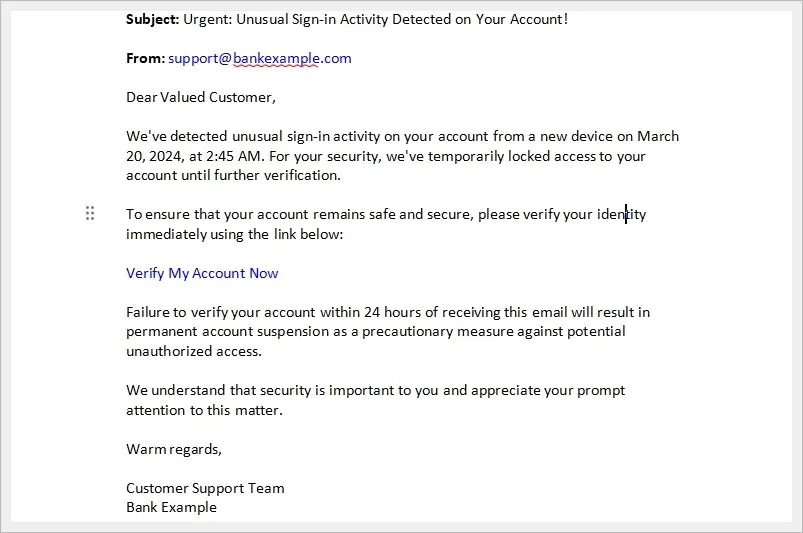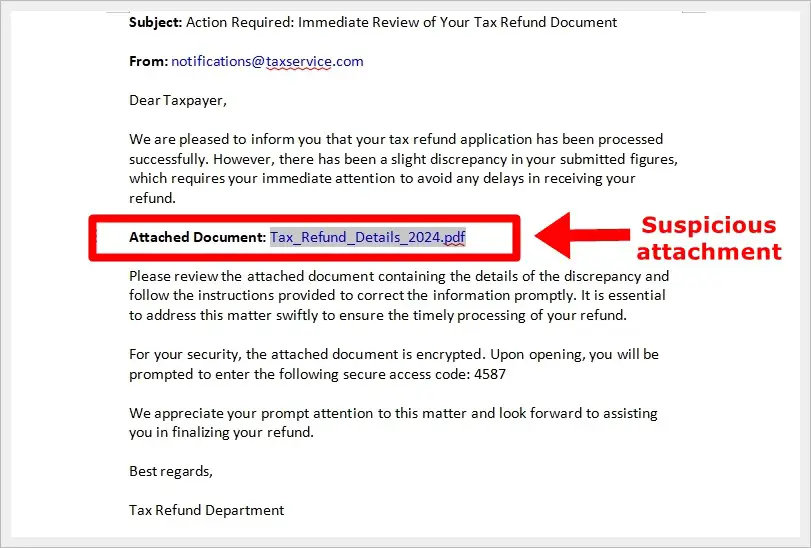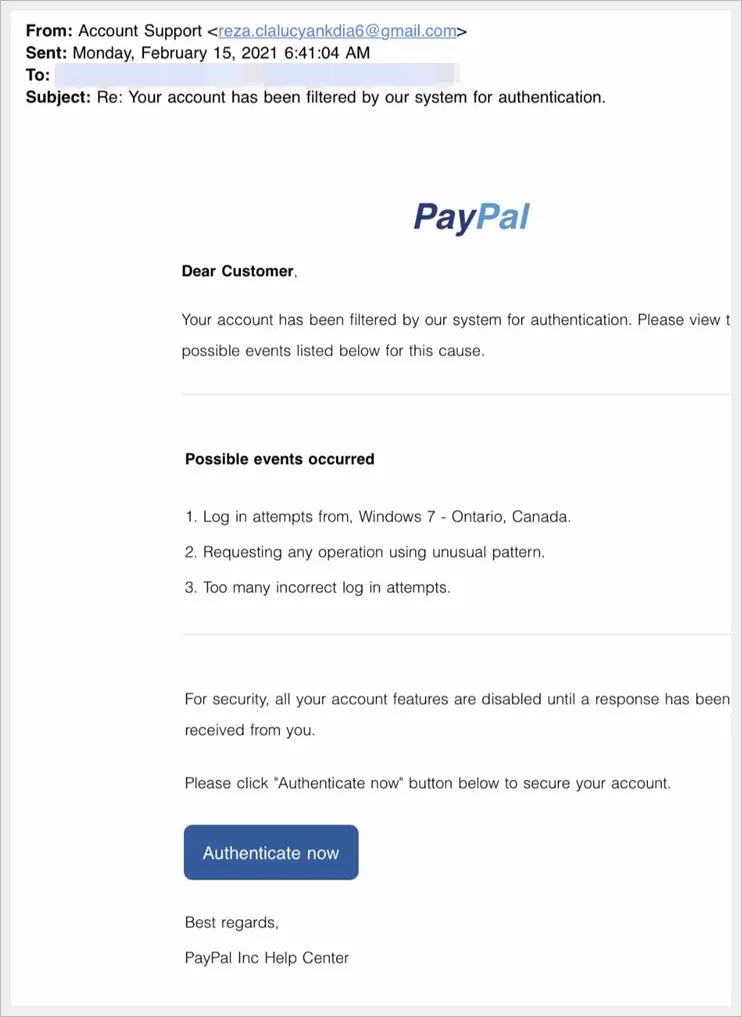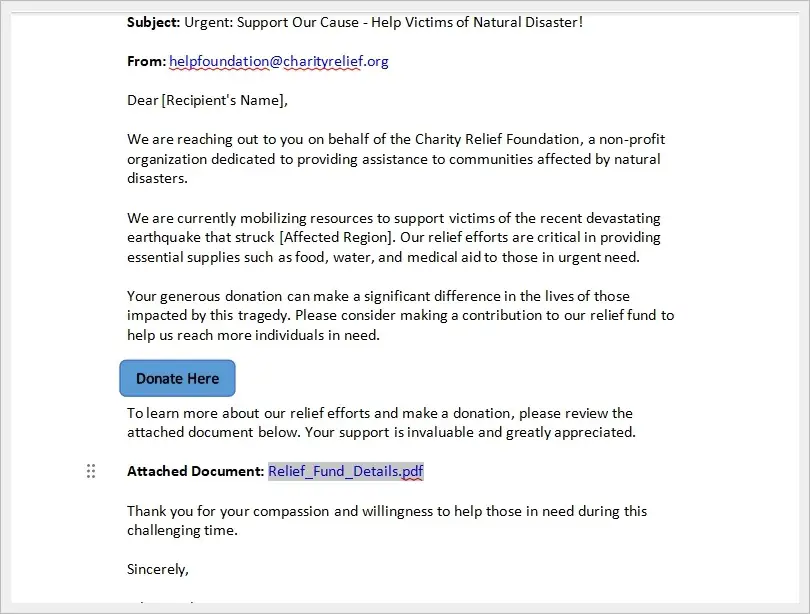In the vast digital ocean where emails flow incessantly into our inboxes, it’s crucial to navigate these waters with caution. Amidst the valuable information and important communications, there are deceptive emails designed to ensnare the unwary. Understanding the types of emails that pose a threat can significantly enhance your online safety. Here’s a comprehensive guide to the top 10 dangerous emails you should avoid clicking on, explained in a simple and straightforward manner.

1. Phishing
Phishing emails are among the most common and dangerous threats lurking in your inbox. These deceitful messages are crafted with care to look like they’re from reputable sources—banks, social media platforms, even your colleagues or friends. The goal? To trick you into divulging sensitive information such as login credentials, credit card numbers, or personal identification details.

If an email seems suspicious, don’t click on any links or download attachments. Instead, verify the sender by checking their email address closely for misspellings or contacting the company directly through official channels.
Pro Tip: Learn more about how to avoid falling for phishing scams and stay vigilant!
2. The Too-Good-To-Be-True Offers
Some emails come bearing promises of unbelievable deals or winnings that seem too good to pass up. These offers often play on our desire for something amazing, whether it’s a dream vacation, a new gadget, or a cash windfall. However, behind these enticing offers may lie the traps set by scammers aiming to exploit your trust and curiosity.
Don’t click on any links or download attachments from emails that seem too good to be true. Approach offers with skepticism, especially if they promise extraordinary rewards for minimal effort or investment.
3. Suspicious Attachments
Emails with unexpected attachments, especially from unknown senders, can pose a significant threat to your online security. These attachments may harbor malicious software, also known as malware, designed to infect your device and compromise your sensitive data. Whether it’s a seemingly harmless document, a flashy image, or a tempting download, exercising caution is paramount when it comes to email attachments.

Confirm the legitimacy of the sender before opening any attachments. Reach out to the sender through alternative means, such as phone or official website, to verify the authenticity of the email. If you must open an attachment, scan it with antivirus software or use online scanning services to ensure it’s safe.
4. Emergency Scams
Emergency scams prey on your emotions by creating a sense of urgency and exploiting your desire to help someone in need. These deceitful emails often impersonate friends, family members, or acquaintances, claiming to be in dire situations and urgently requesting financial assistance. However, behind these urgent pleas lies a carefully crafted scheme to manipulate your compassion and generosity for personal gain.
Take your time to assess the situation calmly and objectively. Scammers rely on your emotional response to pressure you into acting quickly.
5. Account Suspension Threats
Emails claiming that your account will be suspended unless immediate action is taken can be alarming. These messages often come with urgent warnings, urging you to click on a link or provide personal information to avoid suspension. However, it’s essential to remain calm and vigilant, as these emails may be deceptive attempts to steal your sensitive data.

Emails that use urgent or threatening language to prompt immediate action should raise suspicion. Legitimate organizations typically don’t ask for sensitive information via email, especially under the threat of account suspension.
6. Government Impersonation
Emails impersonating government agencies can be convincing and alarming. These deceptive messages may claim to be from tax authorities, immigration departments, or law enforcement agencies, often demanding personal information or payment under the guise of official business. However, it’s crucial to exercise caution and skepticism when dealing with such emails to avoid falling victim to scams.
Government bodies usually contact individuals through official letters or secure online portals, not unsolicited emails. If you receive an email claiming to be from a government agency, don’t open it! Independently verify the information by contacting the agency directly through official channels.

7. Payment Confirmation for Unknown Transactions
Emails that confirm payments for transactions you don’t recall making are designed to provoke anxiety and confusion. These messages might list purchases, subscriptions, or bookings that you never authorized, often with hefty price tags attached. The scammers’ goal is to shock you into taking hasty actions—like clicking on a provided link or attachment to “view the transaction” or “cancel the order”—which can lead to malicious websites or phishing attempts to steal your personal and financial information.
Do not click on any links within the email! If you’re tempted to investigate, do so outside of the email by visiting the official website directly.
8. Fake Job Offers
Emails offering enticing job opportunities, especially those that seem too good to be true, can often be scams in disguise. These deceptive messages may promise high salaries, flexible hours, or work-from-home arrangements, but their true intent is to exploit job seekers for financial gain or identity theft. Recognizing the signs of fake job offers can help you avoid falling victim to these scams.
Unsolicited job offers, especially those requiring you to pay for training or equipment upfront, are typically scams. Genuine employers will not ask for money as a condition of employment. If you receive a suspicious job offer, report it to the appropriate authorities or job search platforms to prevent others from falling victim.
9. Charity Scams
Emails that solicit donations for charity, especially after natural disasters or during holiday seasons, can tug at your heartstrings. While many are legitimate, some are crafted by scammers looking to exploit your generosity. These fraudulent appeals for aid can be difficult to distinguish from genuine charity outreach, but understanding their tactics can help you ensure your donations reach those truly in need.

Before donating, ensure the charity is legitimate by checking with authoritative bodies like the IRS (for US-based charities), Charity Navigator, or the Better Business Bureau’s Wise Giving Alliance. Instead of clicking on links in emails, go directly to the charity’s official website by typing the URL yourself and donate directly through the legitimate organizations’ websites.
10. Lottery Scams
Emails announcing that you’ve won a lottery you never entered can be enticing yet deceptive. These messages often claim that you’ve won a substantial sum of money, a luxury prize, or a once-in-a-lifetime opportunity. However, behind these promises of wealth lies a scam designed to trick you into revealing personal information or sending money to claim your supposed prize. Don’t fall for it!
Legitimate lotteries do not require winners to pay fees or provide personal information upfront. Do not respond to requests for payment or sensitive information. Contact the official lottery organization through their official website or customer service channels to confirm.
Read also: 10 Most Common WhatsApp Scams and How You Can Avoid Them
Staying Safe
- Verify Before Clicking: If an email feels off, verify its legitimacy through other means.
- Use Security Software: Install and update reputable security software to protect your devices.
- Educate Yourself: Awareness is your best defense. Familiarize yourself with the latest scamming tactics.
Frequently Asked Questions (FAQs)
1) Why you should never click on links in email?
Clicking on links in emails can lead to phishing sites, malware downloads, or scams, compromising your personal information and computer security.
2) Can clicking on an email be harmful?
Yes, clicking on links or attachments in emails can be harmful, exposing you to malware, phishing attempts, and other security threats.
3) Which email attachment type is high risk?
Executable files (.exe, .scr, .bat, .cmd) are high risk due to their ability to run potentially malicious code on your computer.
Final Thoughts
By understanding and avoiding these ten types of dangerous emails, you can significantly reduce your risk of falling victim to online scams. Remember, in the digital age, vigilance is your most valuable asset. Stay informed, stay skeptical, and above all, stay safe.




